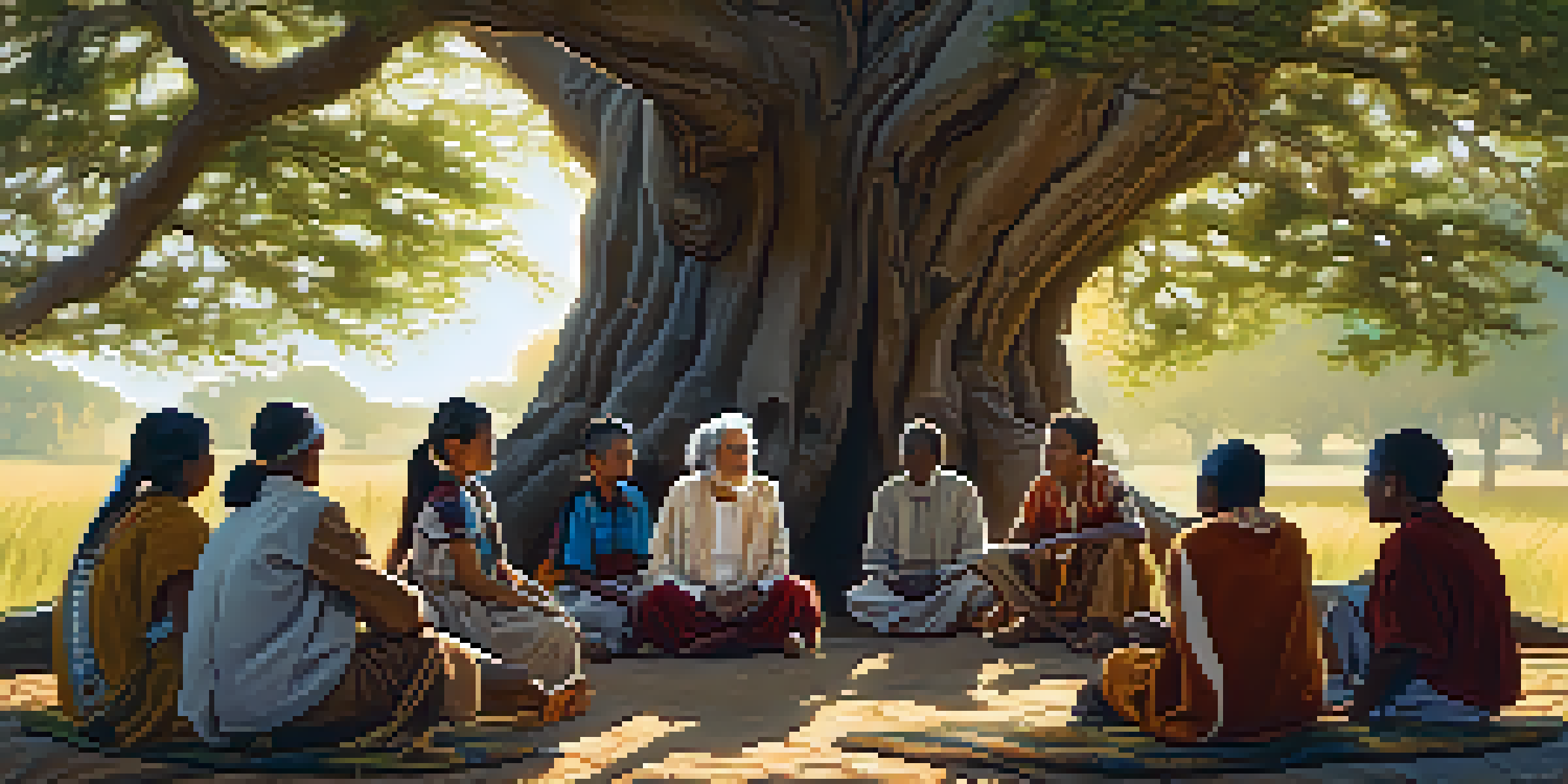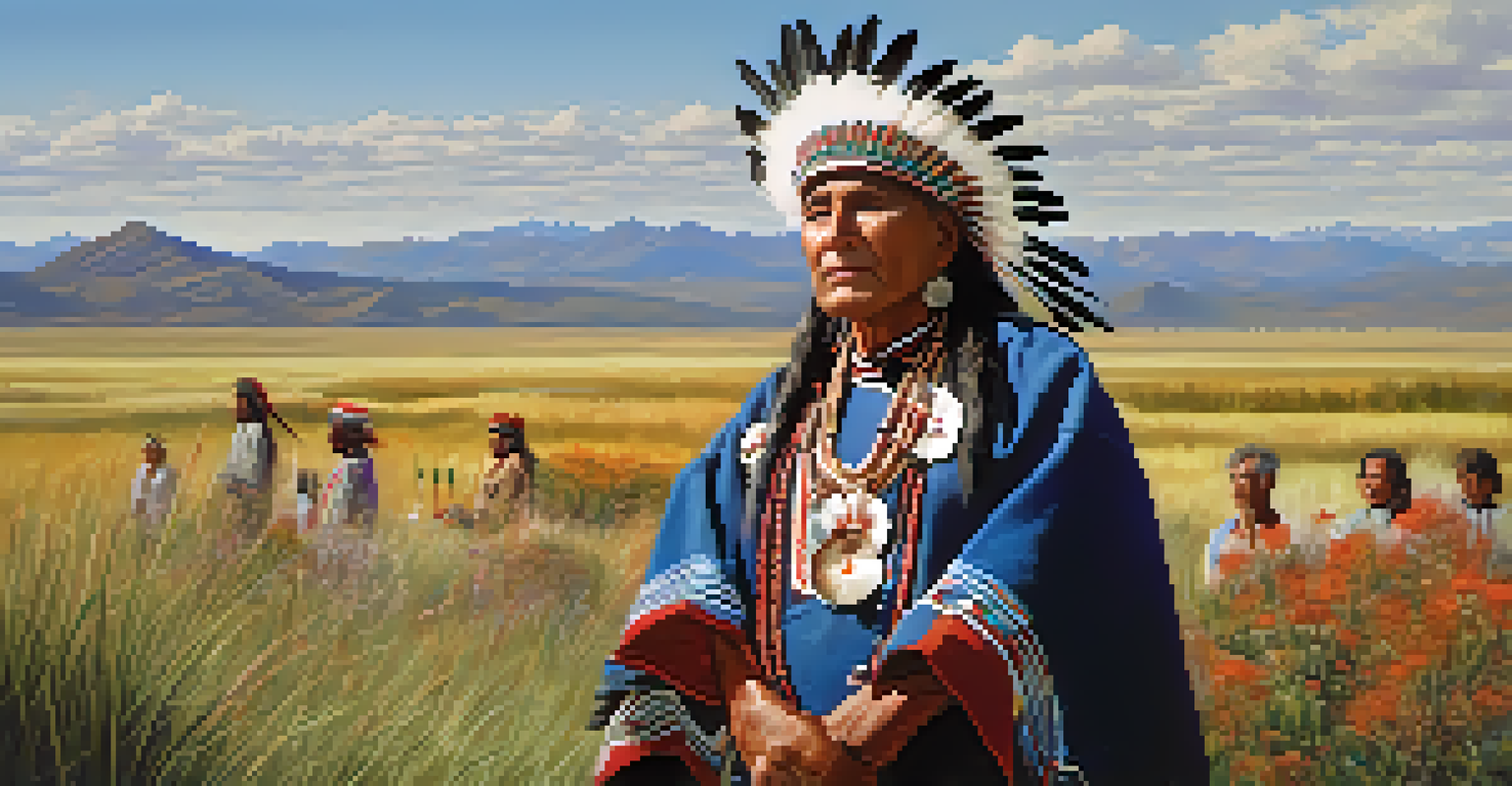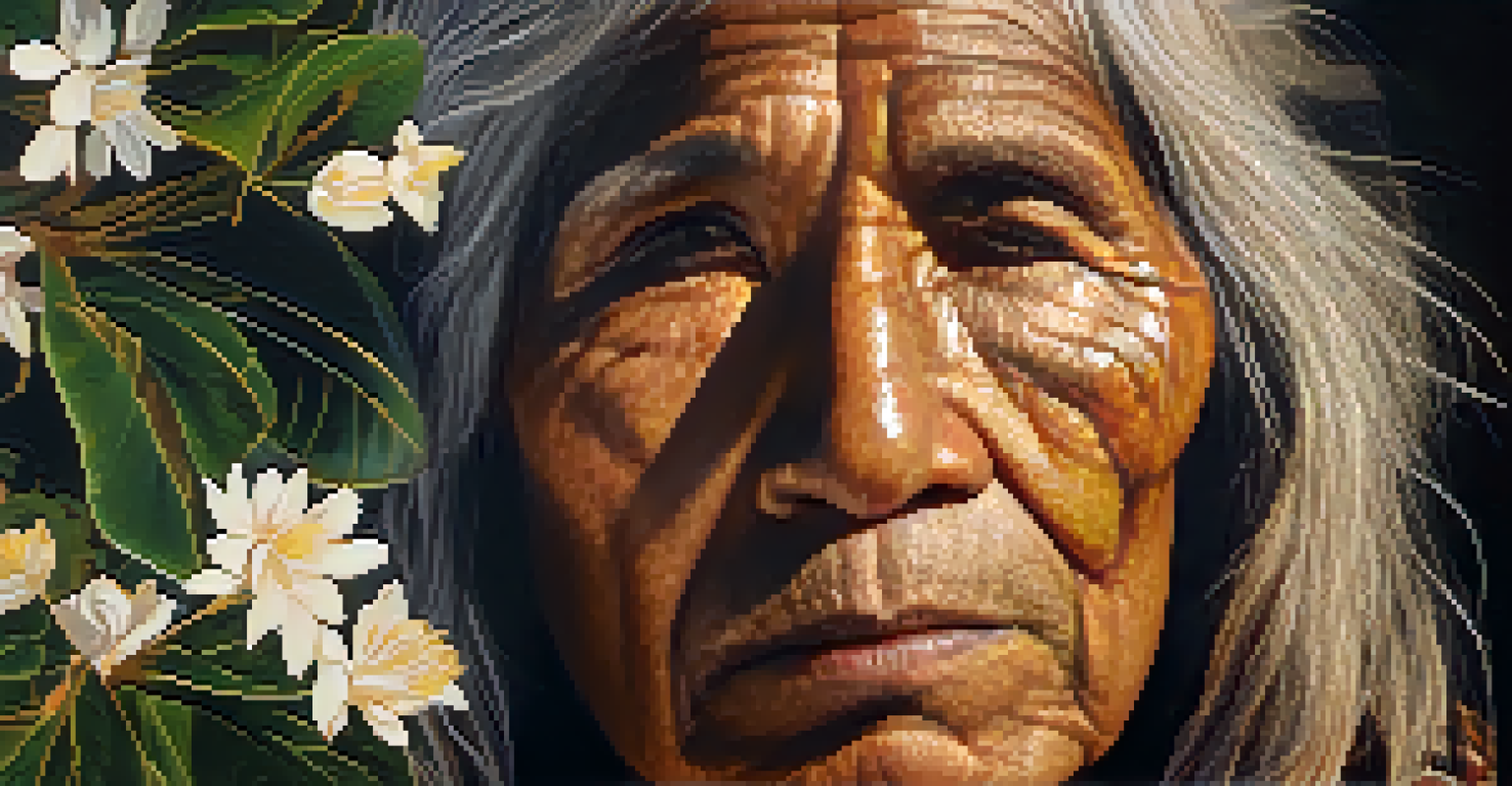The Role of Elders in Colorado's Indigenous Communities

Elders as Cultural Guardians in Indigenous Communities
In Colorado's Indigenous communities, elders play a crucial role as cultural guardians. They carry the wisdom of generations, preserving traditions, stories, and languages that might otherwise fade away. Imagine them as living libraries, where each story shared helps keep the community's identity intact.
Elders are the living memory of our culture, and through them, we learn our past and shape our future.
Elders often guide younger generations, teaching them about their heritage and instilling a sense of pride in their roots. This transfer of knowledge is vital, as it ensures that cultural practices, such as traditional arts and ceremonies, are passed down and honored. Their influence helps cultivate a community that respects its past while navigating the present.
Moreover, the role of an elder goes beyond mere storytelling; they are also mentors and advisors. They provide guidance on personal and communal challenges, helping to foster resilience within the community. This nurturing aspect of their role reinforces the bond between generations, making the community stronger.
The Spiritual Leadership of Elders
In many Indigenous cultures, elders are revered as spiritual leaders who connect their communities to the sacred. They often lead rituals and ceremonies that honor nature and the ancestors, reinforcing the spiritual fabric of the community. This connection to spirituality is essential, as it provides a sense of purpose and belonging to the members.

Their spiritual leadership is not just about tradition; it also involves interpreting the teachings and values that guide the community. Elders help individuals find their path, offering wisdom on how to live harmoniously with nature and one another. This guidance is especially important in a world that often feels chaotic and disconnected.
Elders as Cultural Guardians
Elders preserve Indigenous traditions, stories, and languages, ensuring cultural identity thrives.
Through their leadership, elders instill a deep respect for the environment, teaching the significance of stewardship. They remind community members of their responsibilities to the land and each other, fostering a collective consciousness that prioritizes sustainability and harmony.
Elders as Community Mediators
Elders often serve as mediators in conflicts within the community, drawing upon their life experiences and wisdom. Their neutral stance allows them to facilitate discussions and promote understanding among members. This mediation role is vital for maintaining harmony and cohesion within the community, especially in times of stress.
The wisdom of the elders is like a river; it flows through time, nurturing the roots of our identity.
By addressing disputes in a respectful and culturally relevant manner, elders help ensure that resolutions align with community values. They encourage individuals to express their feelings while guiding them toward solutions that honor their shared heritage. This process strengthens relationships and reinforces community bonds.
Additionally, their mediation extends beyond interpersonal conflicts; they often engage with external entities, advocating for the needs and rights of their communities. Through these efforts, elders help bridge gaps between their people and outside systems, ensuring that their voices are heard.
Elders in Education and Mentorship
Education is another critical area where elders make a significant impact. They often participate in formal and informal educational settings, sharing their knowledge and skills with younger generations. This mentorship not only helps preserve cultural practices but also fosters a sense of responsibility among youth to carry on these traditions.
Through storytelling sessions, hands-on workshops, and cultural events, elders create engaging learning experiences. These interactions enrich educational curricula, making them more relevant and meaningful to students. It’s like having living textbooks that provide context and depth to the lessons learned.
Spiritual Leadership and Guidance
As spiritual leaders, elders connect communities to their heritage, teaching harmony with nature.
Moreover, this mentorship builds confidence and leadership skills in youth, preparing them to take on future roles within the community. By nurturing young leaders, elders ensure that the community's values and traditions continue to thrive in a modern world.
Health and Well-Being: The Role of Elders
Elders also play a crucial role in promoting health and well-being within Indigenous communities. They often share traditional healing practices and holistic approaches to health that have been passed down through generations. These practices are essential in fostering a sense of balance and wellness among community members.
Their wisdom often includes guidance on mental and emotional well-being, emphasizing the importance of community support and connectedness. Elders encourage individuals to seek help from one another and to maintain strong relationships, which can be incredibly healing. This communal approach to health contrasts with more individualistic views often found in modern society.
Additionally, elders often advocate for access to healthcare services that respect cultural traditions. By working alongside healthcare providers, they ensure that the needs of the community are met while honoring their values. This advocacy is crucial in promoting a holistic view of health that integrates both traditional and modern practices.
Elders as Symbols of Resilience
In the face of historical and ongoing challenges, elders embody resilience and strength. Their life stories often reflect the struggles and triumphs of their communities, serving as powerful reminders of the importance of perseverance. Each elder carries a narrative of survival that inspires younger generations to remain steadfast in their identities.
Elders not only share their experiences but also instill hope and motivation in others. They remind community members of their rich history and the strength derived from their cultural heritage. This connection to the past fosters a sense of pride and determination to overcome obstacles.
Elders as Mediators and Advocates
Elders facilitate conflict resolution and advocate for community needs, strengthening social cohesion.
Furthermore, as custodians of tradition, elders help communities adapt to change while remaining anchored in their values. This balance between honoring the past and embracing the future is a testament to their resilience, encouraging others to navigate the complexities of modern life with grace.
The Future of Elders in Colorado's Indigenous Communities
As Colorado's Indigenous communities continue to evolve, the role of elders remains critically important. They are adapting to new challenges and technologies while ensuring that cultural traditions are preserved. This adaptability is vital for the survival of Indigenous identities in a rapidly changing world.
Elders are increasingly engaging with younger generations through social media and modern communication, finding innovative ways to share their wisdom. This not only broadens their reach but also makes them more accessible to youth who may feel disconnected from traditional practices. It’s a beautiful blend of old and new that keeps the culture alive.

Looking ahead, the continued involvement of elders in decision-making processes is essential for the health of their communities. Their insight and experiences provide invaluable context that can guide future initiatives. By prioritizing the role of elders, Colorado's Indigenous communities can ensure a vibrant and resilient future.